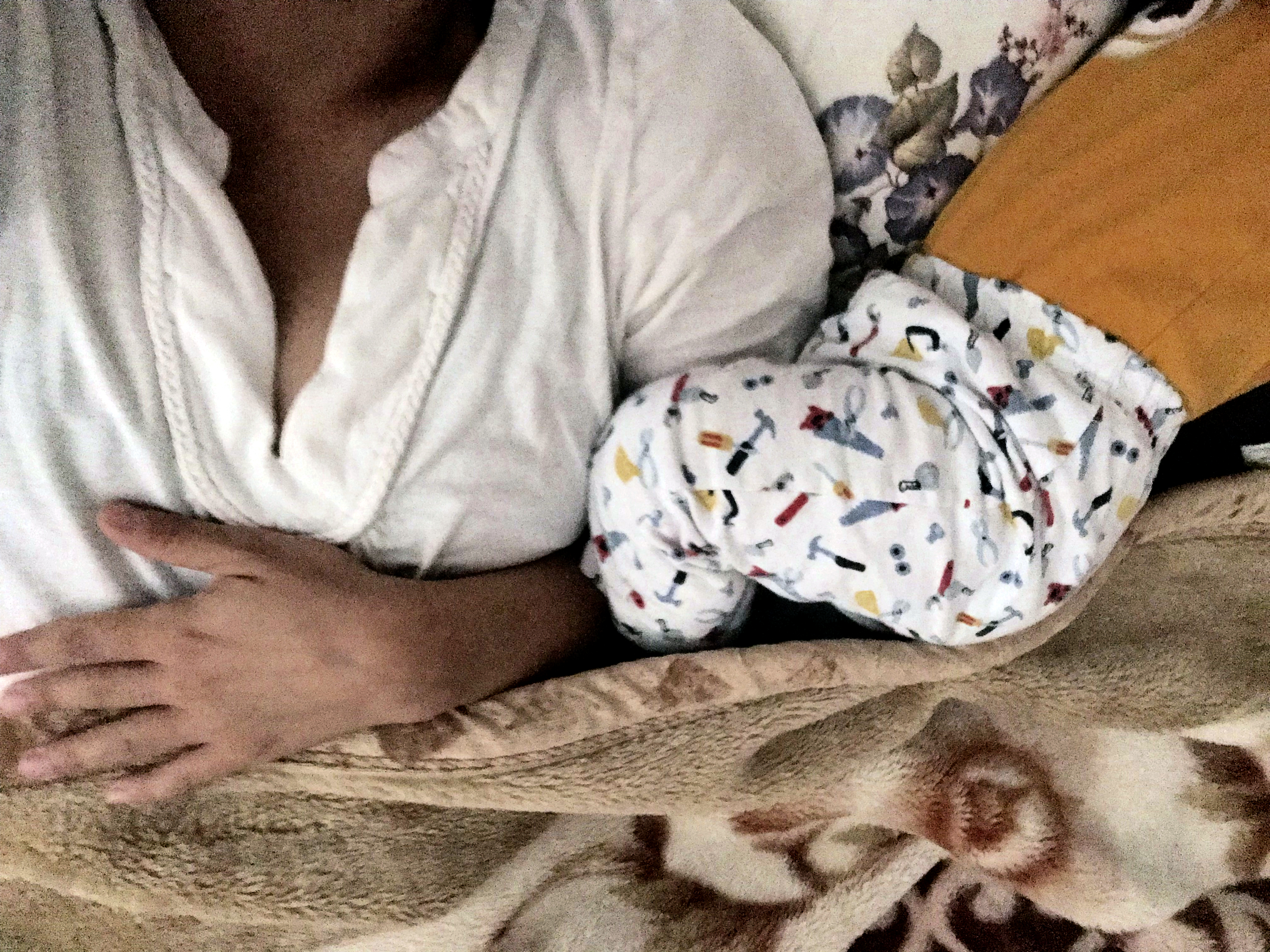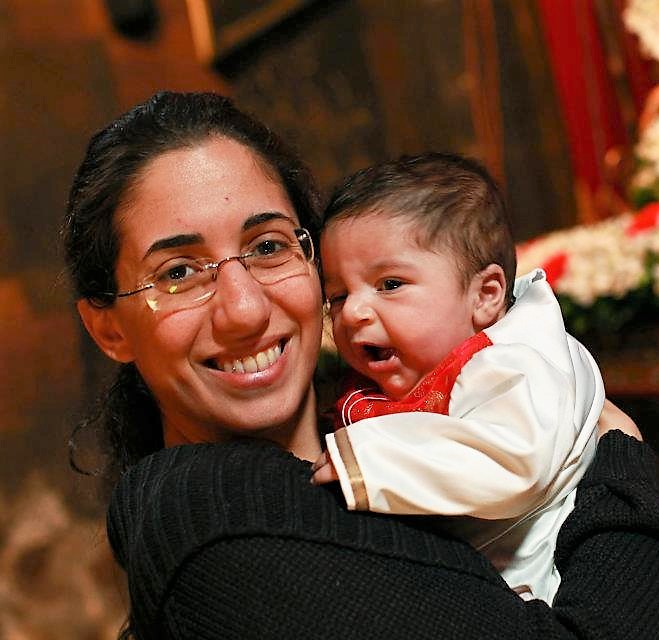 Many mothers share concerns about moving to Armenia that make complete sense to me. Among them is access to proper postpartum care. I was never concerned about this. I thought to myself, “I won’t need it, I can do everything just like every other mother in Armenia.” I ignored a few details along the way.
Many mothers share concerns about moving to Armenia that make complete sense to me. Among them is access to proper postpartum care. I was never concerned about this. I thought to myself, “I won’t need it, I can do everything just like every other mother in Armenia.” I ignored a few details along the way.
I’m not usually comfortable with sharing such personal details about my life. It takes a lot to convince me to do so publicly. In this case I feel obligated, because I hope to prevent unnecessary struggles among others who might face similar challenges.
When my first child was born, he showed promising signs of sleeping through the night. I was in the US, and I had a good support system around me to sleep train him. I worked a 9-5 job in an office and required sleep to function. By 7 months, he was doing just that: sleeping 12 hours through the night.
When my second child was born in Armenia, sleeping through the night was definitely not as promising. Though many aspects of raising him seemed easier, he was a terrible sleeper from day one. In the beginning, I was convinced he would gradually just learn on his own. I convinced myself, “By this time next year I will be sleeping in my own bed through the night.” I was sure it would all happen without sleep training.
I was wrong in so many ways. Over time and with each tooth, it seemed he was only getting worse. He would wake up often every 15 minutes screaming. Pretty soon, I found myself at his bedside on a terribly uncomfortable temporary mattress (for I feared getting too comfortable). This eventually became our nightly routine. My body was aching; I wasn’t sleeping.
Many parents will probably share similar experiences, but I’m going to share what made this situation uniquely harder.
Many from abroad suggested getting my husband to stay with the baby every other night, while those in Armenia were surprised I would even think of it. My husband works 16 hour days standing on his feet and has 3 herniated discs in his back. Holding his own son, as much joy as it brings, only makes his back even worse. He is still struggling with this pain. Despite his physical limitations, he did stay with the baby a few times just to let me get some rest on the worst nights.
Sometimes friends and family would recommend sleep training by letting him cry until he falls asleep. I’m clearly not opposed to the process as I did so with my firstborn. But as a friend recently once related, I don’t believe every child responds to sleep training the same and my instincts tell me that it would only make things worse in this case. Personal feelings aside, the so-called ‘cry it out’ method is actually considered abuse to many in Armenia.
Pretty soon, any suggestion went in one ear and out the other. All I knew was that I was in an environment that made me feel like the struggle I was facing was no big deal. I have it easy. I should get over it.
I was in an environment that made me feel like the struggle I was facing was no big deal. I have it easy. I should get over it.
My husband along with several friends and family stood by me and tried to convince me that I’m enduring a torture tactic used in combat. Sleep deprivation is serious and should be taken seriously. However, enough people around me continued to tell me I’m just complaining and need to pull myself together. Those comments often came after several weeks of an average of 30-60 minutes of sleep per night, if that much.
When I had an ounce of energy, I tried to debate with people telling them sleep deprivation is unhealthy, and it’s important to have help during times like this for the sake of the mother’s mental health. My words often fell on deaf ears. I was disregarded as spoiled and “Western.” When I did decide to take a short nap in the morning to take the edge off, I was called lazy or often woken up for more urgent matters that required my alert attention.
So I started to believe that I was coming from a place of privilege and often tried to dismiss my desperate need for sleep. This went on for a year until people started to notice something was off. When I went to lunch with friends, they would be concerned and tried to recommend serious help. My mother would plead to me from abroad to get help. My husband, above all else, begged me to get help. I finally did.
I was eventually diagnosed with postpartum sleep deprivation/depression. I started having anxiety attacks and they became more frequent with time. Some days I would have 5-7 anxiety attacks per day. Unfortunately my kids would experience the worst side effects: my anger. It may not have manifested in physical abuse, but I was not a good mother by any standards. Often times my solution was to distract them with TV until my panic attacks would subside. I hated myself for this.
I should have been more prepared. I should have known what was coming, especially since my family has a history of depression—postpartum or not. I don’t blame society for my negligence towards my own health, but it didn’t help. The guilt was external. I was judged for wanting sleep, and I was judged for being angry.
One day on Facebook, I found a conversation about another’s plea for mental health. I dodged a bullet by confessing my own struggles and facing more judgement, which the original Facebook user did endure. But, I did make an appointment. There are facilities in Armenia that take these matters very seriously and can help. If you can fight your way through the judgment, you can find help.
There are facilities in Armenia that take these matters very seriously and can help. If you can fight your way through the judgment, you can find help.
The doctor said my major problem is lack of sleep. If I slept, I’d be ok. It seems he was right. With the advice of a fellow mother (based in the US), I began a slower and more soothing bedtime routine and sleep training process. He has been sleeping better ever since, even while teething 4 new teeth at the same time. I also ditched his crib, which was small and limiting, and committed to sharing a big cozy mattress in the kids room. This was hard to accept because I know it will be a while before I return to my own bed again. But I will sleep. So will my son. These days will pass, and I know I have my husband by my side through it all.
It’s been a few weeks of better sleeping and the difference was immediate. My conclusion after all this is simple. While Armenia gets a lot of parenting techniques right, it gets a lot of motherhood care wrong. I am generalizing of course, but based on my experiences, I can share precautions. I did not feel safe to seek help in Armenia until I was forced to do so by loving family members. It’s hard to expect other mothers to sympathize when they are facing other issues of abuse and violence. This is no reason to lower our standards of self-care. The higher we raise the standards for ourselves, the higher we can raise them for those around us.
At the end of the month, I am helping Mama Forum in its collaboration with UNICEF and Proper Company to organize a Pecha Kucha Night to present issues of raising a healthy family, including mothers. I hope this will lend to an important conversation about mental health and that it will become more of a priority for the sake of our children, and their mothers.



Be the first to comment